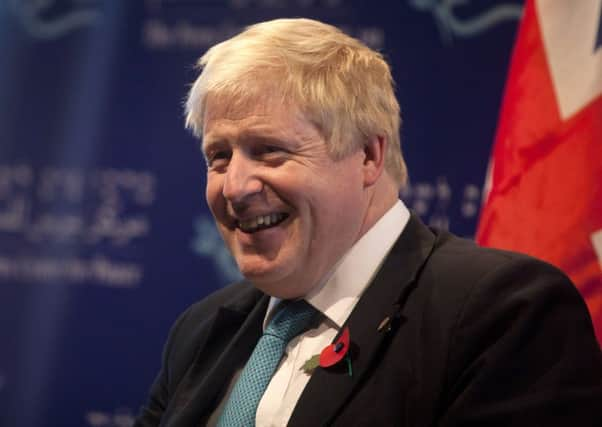Leaders: Backing Boris is putting party before country


So, on the plus side, the new Prime Minister Theresa May did not hang about, she just got on with one of the most comprehensive cabinet re-shuffles ever seen, one that has left her with a very different cabinet to that of her predecessor.
That speed has to be taken as a sign that Mrs May understands the need for Britain to get back to business quickly. But what more are we to make of Mrs May’s choices?
Advertisement
Hide AdAdvertisement
Hide AdThere was little chance of George Osborne surviving the change in leaders, he was too closely allied to David Cameron and played such a high-profile role in the referendum campaign with such acrimony developing between him and some of the opposite camp that keeping him would have proved divisive, especially for a Prime Minister who has to demonstrate her Leave credentials.
But the big question on the role of Chancellor is will Philip Hammond continue with Osborne’s austerity, and if so will he pursue it with such dogmatic enthusiasm? As is to be expected, Mr Hammond was not giving much away, deciding prudently that the immediate task is to try and reassure the markets and the world that it is business as usual, so there will be no emergency Budget and there will be an autumn statement in the usual way. However, it is unlikely austerity will be pursued with the same fervour, but then who knows what imperatives might be raised as Brexit continues.
Justice secreatary Michael Gove was the first victim of the axe, and given the speed he dropped out of the leadership campaign and endorsed Mrs May, he may be feeling a little hard done to. There are many who believe the ruthlessness with which he dispatched Boris Johnson showed he could not be trusted and he got his just deserts. However, given the history of clashes between Mr Gove and Mrs May it is more likely that which guided her hand. And of course there was the thorny issue that, if she wanted Mr Johnson in the cabinet, it was impossible to have Mr Gove.
And here is where the Prime Minister has gone wrong, she has brought MrJohnson not only in to government but in to the key role of Foreign Secretary. It is hard to imagine a role less suited to his apparent talents of buffoonery and diplomatic gaffes. The news was greeted by many foreign government representatives as a joke, something that actually made them laugh because they could see the absurdity. Others despaired and spoke disparagingly, not exactly giving high hopes about relationships in future.
The truth is that here Mrs May has put party before country. It must be supposed that Mr Johnson carries such support within the party for his Brexit campaign leadership role that he had to be included. That pressure has obviously demanded one of the key roles in government. Mrs May does have to heal her party as well as the country but it can only be a matter of time before Mr Johnson embarrasses the nation in his new role.
Elsewhere it was magnanimous of Mrs May of to promote Andrea Leadsom to Environment Secretary. Or was that the deal for dropping out?
In or Out, Scotland will attract tourists
It can come as no surprise that the number of overseas visitors to came to Scotland in 2015 is down on the previous year, given the huge sporting events like the Commonwealth Games and the Ryder Cup that were massive draws. And the eyes of the world were also on Scotland as the independence referendum sparked interest across the globe.
In fact, the real surprise is that the number only dropped by 8 per cent. That actually was no loss – quite the reverse, as earnings from these visits actually went up year on year by a considerable margin.
Advertisement
Hide AdAdvertisement
Hide AdMeanwhile, visits from other parts of the UK led to an increase in earnings of 8 per cent on the previous year. And signs this year are very encouraging.
Scotland’s tourism industry has made great strides in recent years, not just in terms of improvements in airline routes and other infrastructure, or targeted marketing, although these have helped.
The improvement offered in the experience of coming to Scotland has improved markedly too. While golf, whisky and heritage tourism are obviously staples, we are now a food destination and are making better use of our wonderful natural resources and environment for the growing activity market in areas like mountain biking, walking and kayaking.
We should have no fears that the UK’s signal to Europe over the EU referendum will have a markedly malign effect on our tourism appeal – if there are good experiences and good service then visitors will still be attracted.
And in the “every cloud has a silver lining” mindset, it should be noted that the relative weakness of the pound will make us even more attractive to many overseas visitors.